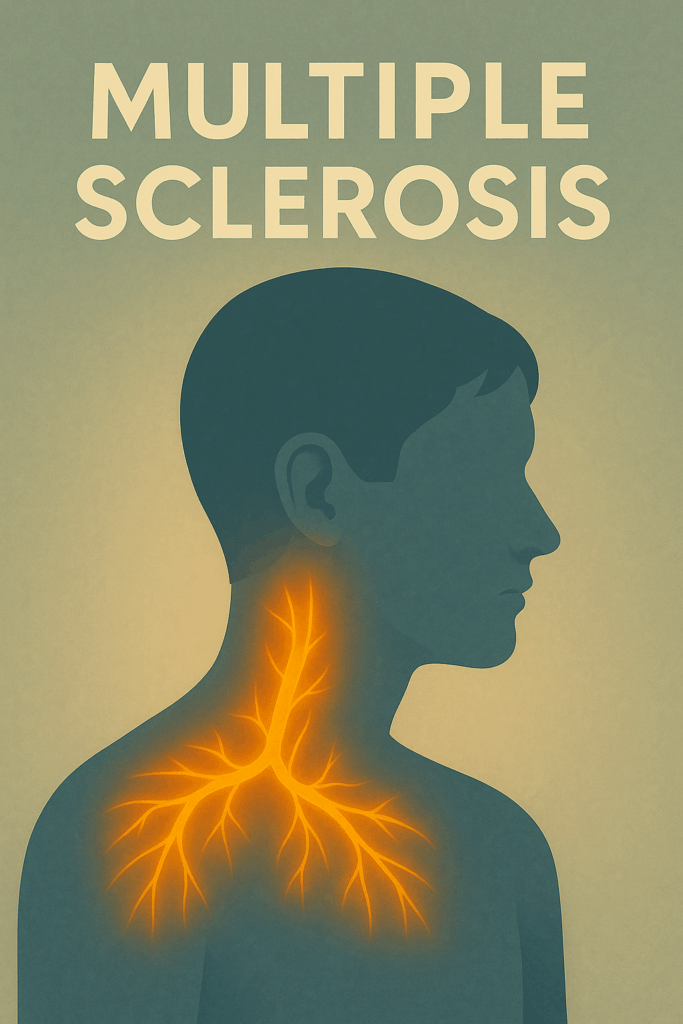Multiple Sclerosis: The Body’s Call for Rest and Nerve Renewal
Multiple sclerosis (MS) is a condition in which the body’s nervous system becomes chronically irritated and weakened, leading to fatigue, numbness, weakness, or loss of coordination. From a Natural Hygiene perspective, MS is not an autoimmune disease, nor a mysterious attack on the nerves, but a reflection of deep systemic exhaustion and toxic overload. The nerves, starved of vitality and suffocated by waste, lose their ability to conduct impulses efficiently. The symptoms are the body’s attempt to slow life down and redirect energy toward repair.
The nervous system governs every process in the body. It depends on pure blood, oxygen, and rest to transmit energy through the delicate sheath that insulates nerve fibres. When the bloodstream becomes loaded with acids, stimulants, and chemical residues from unnatural living, this sheath becomes inflamed and begins to break down. MS is not caused by the body attacking itself, but by years of accumulated strain, overstimulation, and malnutrition. The body’s “shutdown” of certain functions is a protective measure — forcing rest so regeneration can begin.
Modern diets heavy in processed foods, caffeine, alcohol, and animal products contribute greatly to this deterioration. These substances deplete nerve energy and leave behind acidic waste that the body struggles to neutralise. Over time, this chemical congestion interferes with circulation to the brain and spinal cord, leading to poor oxygenation and fatigue. Healing requires not stimulation, but simplification — removing what irritates the nerves and supplying what restores them.
A diet of fresh fruits, leafy greens, and simple raw meals helps cleanse the bloodstream and nourish nerve tissue. Fruits, with their natural sugars, provide the most efficient fuel for nerve energy. Deep rest is equally vital. The nervous system cannot heal while under constant pressure, noise, or emotional turmoil. Quiet time, early nights, and deep breathing re-establish calm within the body, allowing repair processes to operate unhindered.
Emotional tension is also a major factor. Chronic worry, fear, or overexertion keeps the body in a constant “fight or flight” state, draining nerve reserves. Many people with MS have lived for years at a high level of output, rarely resting. The body eventually intervenes, slowing movement and forcing stillness so healing can occur. Releasing emotional pressure through reflection, creativity, or gentle connection with nature helps restore nervous harmony.
Fasting is one of the most powerful ways to aid recovery. When digestion pauses, the body redirects energy toward cleansing the nerves and removing stored toxins. Under proper supervision, fasting allows deep purification of the blood and lymph, relieving the brain and spinal cord of congestion. The result is improved clarity, energy, and strength.
Exercise should be gentle and restorative, not strenuous. Walking, stretching, or swimming stimulate circulation and oxygen flow without exhausting the system. Exposure to fresh air and sunlight helps rebuild vitality and balance the endocrine system, which closely interacts with nerve function.
Multiple sclerosis, in truth, is the body’s cry for rest and renewal. The nervous system has carried too much for too long. Healing begins when we honour that message — removing toxic inputs, simplifying diet, releasing emotional burdens, and allowing the body to slow down. With time, patience, and natural living, the body’s innate intelligence restores the harmony and flow needed for strength and movement to return.

